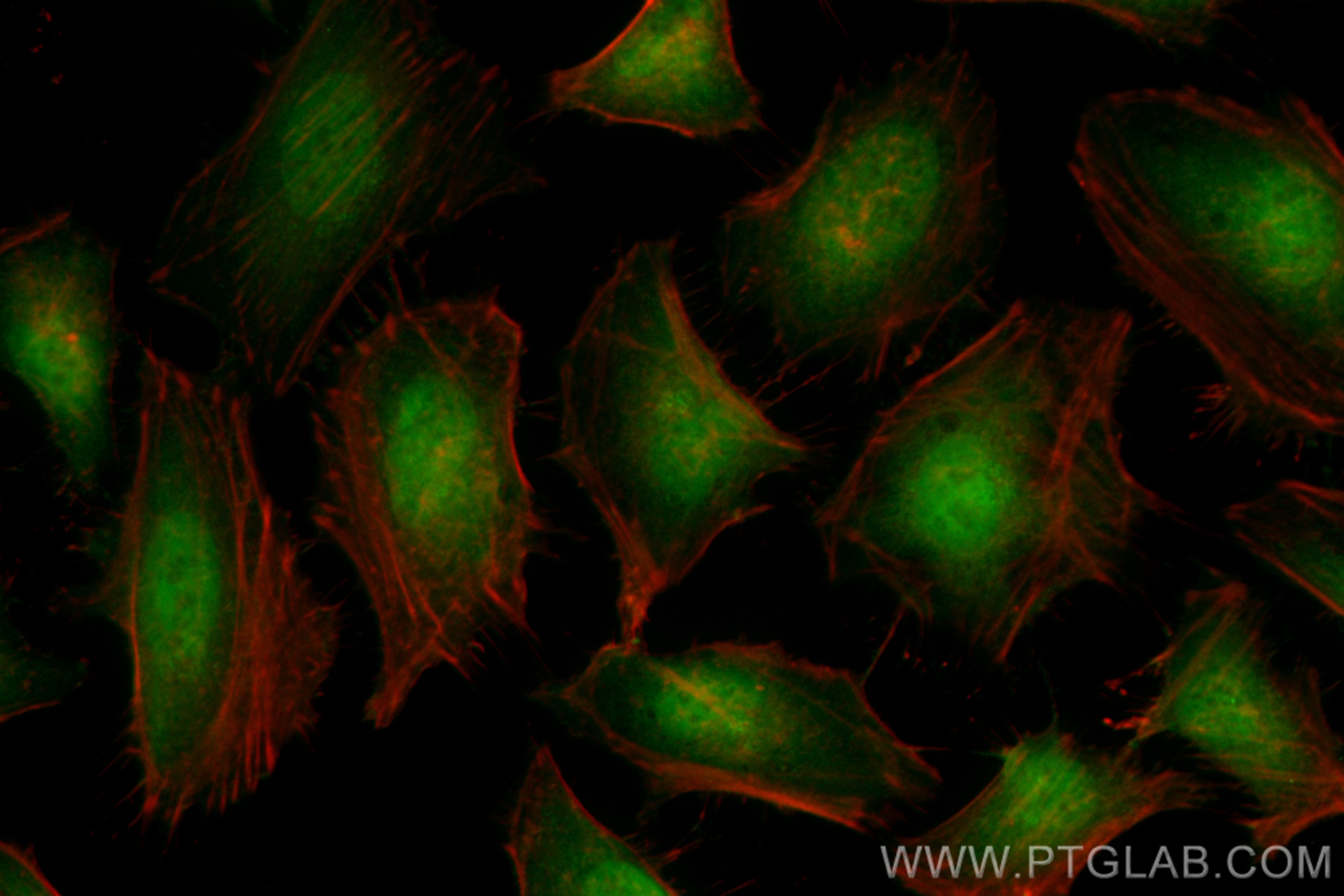TPR Rekombinanter Antikörper
TPR Rekombinant Antikörper für IF/ICC
Wirt / Isotyp
Kaninchen / IgG
Getestete Reaktivität
human
Anwendung
IF/ICC
Konjugation
CoraLite® Plus 488 Fluorescent Dye
CloneNo.
230413A2
Kat-Nr. : CL488-83177-5
Synonyme
Geprüfte Anwendungen
| Erfolgreiche Detektion in IF/ICC | HeLa-Zellen |
Empfohlene Verdünnung
| Anwendung | Verdünnung |
|---|---|
| Immunfluoreszenz (IF)/ICC | IF/ICC : 1:50-1:500 |
| It is recommended that this reagent should be titrated in each testing system to obtain optimal results. | |
| Sample-dependent, check data in validation data gallery | |
Produktinformation
CL488-83177-5 bindet in IF/ICC TPR und zeigt Reaktivität mit human
| Getestete Reaktivität | human |
| Wirt / Isotyp | Kaninchen / IgG |
| Klonalität | Rekombinant |
| Typ | Antikörper |
| Immunogen | Peptid |
| Vollständiger Name | translocated promoter region (to activated MET oncogene) |
| Berechnetes Molekulargewicht | 267 kDa |
| Beobachtetes Molekulargewicht | ~270 kDa |
| GenBank-Zugangsnummer | NM_003292 |
| Gene symbol | TPR |
| Gene ID (NCBI) | 7175 |
| Konjugation | CoraLite® Plus 488 Fluorescent Dye |
| Excitation/Emission maxima wavelengths | 493 nm / 522 nm |
| Form | Liquid |
| Reinigungsmethode | Protein-A-Reinigung |
| Lagerungspuffer | PBS with 50% glycerol, 0.05% Proclin300, 0.5% BSA |
| Lagerungsbedingungen | Bei -20°C lagern. Vor Licht schützen. Nach dem Versand ein Jahr stabil. Aliquotieren ist bei -20oC Lagerung nicht notwendig. 20ul Größen enthalten 0,1% BSA. |
Hintergrundinformationen
Nucleoporin TPR was originally identified as the oncogenic activator of the met, raf, and trk protooncogenes. TPR is a large 270 kDa protein with a bipartite structure consisting of a ~1600-residue a-helical coiled-coil N-terminal domain and a highly acidic non-coiled ~800 amino acid carboxy terminus (PMID: 22253824). TPR is localized exclusively to intranuclear filaments associated with the nucleoplasmic side of the NPC, by directly binding to Nup153 (PMID: 12802065).
Protokolle
| PRODUKTSPEZIFISCHE PROTOKOLLE | |
|---|---|
| IF protocol for CL Plus 488 TPR antibody CL488-83177-5 | Protokoll herunterladen |
| STANDARD-PROTOKOLLE | |
|---|---|
| Klicken Sie hier, um unsere Standardprotokolle anzuzeigen |


